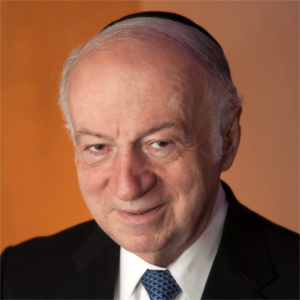Jan 27, 2020 By: mbrennan
 Julius Berman
Julius BermanWhat is your reaction to the France survey? Once again, we are seeing a significant and dangerous gap in how younger generations around the world understand the Holocaust, a history that is critically important not just to Jews but to humanity. At one time, we thought that we had done the work needed and that we could sit on our laurels. But now it’s just the opposite. The results of the French survey are confirming an unsettlingly trend. Ignorance of the Holocaust is accelerating globally. We must strengthen our educational efforts to inform the non-Jewish world, both young and old, of this history. In fact, it is critical even for Jews themselves. How do we move forward and combat this trend? Our current Holocaust education is not ample. We need to come up with new models and new ways to reach the broadest reach of people utilizing the resources we have and ensure that younger generations are armed with the right information. As our French colleague Robert Ejnes, executive director of the Representative Council of French Institutions, noted, “Even though there has been much education of the Shoah, we all know that education has to be repeated again and again and adapted to speak to each generation.” How is the Claims Conference addressing this challenge? At the Claims Conference, we spend an enormous amount of time and money in educating public school teachers about the value they can impart by teaching the history of the Holocaust as well that of anti-Semitism. We look to ensure that non-Jewish students learn more about this historical tragedy so that they are less susceptible to the false narratives and factual distortions that have become so pervasive. Can you provide some specific examples? Over a three-year period, the Claims Conference has provided training to teachers from 59 countries with an estimated long-term impact on 30 million students. When you train a history teacher about the Holocaust, the impact can be enormous. You’re just not sharing knowledge with one generation but the next and the next. You’re laying a foundation for knowledge to take root. We are also using new educational vehicles to reach younger generations. At the Claims Conference, we’re exploring how to better connect with young people across the globe through more innovative uses of media and other channels, the types of educational vehicles they would more readily engage with. Our hope is that by broadening our reach, we can make a real impact in those parts of the world where Holocaust denialism and distortion have taken hold. Any last thoughts? When Primo Levi, Auschwitz survivor and author of If This is a Man, said, “It happened, therefore it can happen again,” he was throwing out a challenge to all of us. Are we up to the task of understanding, preserving and passing on a body of historical knowledge that can inform moral choices throughout generations? Given that the living memory of World War II and the Holocaust is disappearing before our very eyes, Levi’s statement and the challenge it implies have taken center stage.
